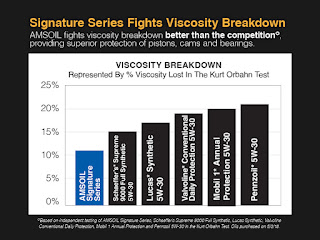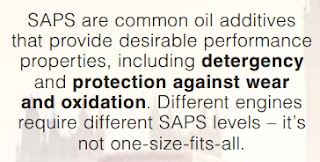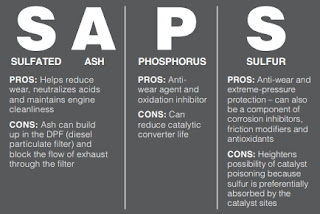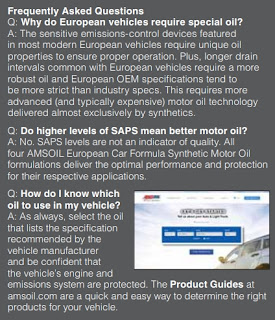Summer belongs to classic cars and hot rods. It's the season when thousands visit car shows across North America
and loyalists of every make and model cruise the streets to show off their rides. One of the big concerns among classic
car owners in recent years, however, has been the abundance of flat-tappet camshaft failures that many attribute to the
reduction of zinc and phosphorus in today's oil formulations.
Zinc dialkyldithiophosphate (ZDDP) is the most common zinc-based additive, and is used primarily as an anti-wear
agent to prevent premature engine wear. It also provides corrosion and oxidation protection. However, because the zinc
and phosphorus found in ZDDP can negatively affect catalytic converters, it has been phased out of motor oil
formulations in recent years.
Reducing ZDDP content has drawbacks, as classic car owners have found. Older vehicles with flat tappet camshafts
and, in particular, engines that include high-tension valve springs or other modifications that create high contact
pressures can suffer premature wear due to reduced ZDDP levels.
Flat-Tappet vs. Roller Cams
The design of flat tappet cams makes them especially vulnerable to wear. As the name indicates, the tappet - or
lifter - is flat. During operation, the surface of the cam lobe slides rapidly over the surface of the tappet,
producing high friction and temperatures. A thin oil film is the only barrier that prevents the lifter and cam lobe
from welding together. If the oil film fails or provides insufficient wear protection, the two components can
eventually wear the flat tappet cam and affect valve operation. Engine power and efficiency can decline if the flat
tappet cam cannot lift the valves enough to adequately charge the chamber for ignition or release exhaust fumes.
Because most V8 engines of the muscle-car era came standard with flat tappet cams, the problem is especially prevalent
to classic-car and hot-rod owners.
Roller cams, on the other hand, are differentiated by rolling contact rather than sliding contact. Although more
costly, roller cams are common in most modern vehicles and can be retrofitted into classic-car and hot-rod engines.
 |
| Click for larger image |
Demand for High-Zinc Oils
The abundance of flat tappet camshaft failures in classic-car and hot-rod circles has spurred the market for high
zinc motor oils formulated especially to protect flat tappet cams
AMSOIL Z-ROD® 20W-50 Synthetic Motor Oil (ZRT) and
AMSOIL Z-ROD® 10W-30 Synthetic Motor Oil (ZRF) are
specially engineered for these classic and high-performance vehicles. It features a high-zinc formulation to help
prevent wear on flat tappet cams and other critical engine components. Because many of these vehicles sit idle much of
the time, Z-ROD contains a proprietary blend of rust and corrosion inhibitors for added protection during longterm
storage. Z-ROD Synthetic Motor Oil is designed to perform on the street and protect during storage.
Complete Vehicle Protection
Classic cars and hot rods need more than just premium engine protection. Many are modified to deliver increased
power and torque, placing added stress on the transmission, differential and chassis. AMSOIL Synthetic Manual
Transmission & Transaxle Gear Lube (MTG), Severe Gear® Synthetic Gear Lube (SVG, SVT, SVO & Dominator®
Synthetic Racing Grease (GRG) offer advanced protection modified classic cars and hot rods need. These and other
products are featured in the new Classic Cars Brochure (G3113).
Purchase AMSOIL products at up to 25% discounted as an
AMSOIL Preferred Customer.
















